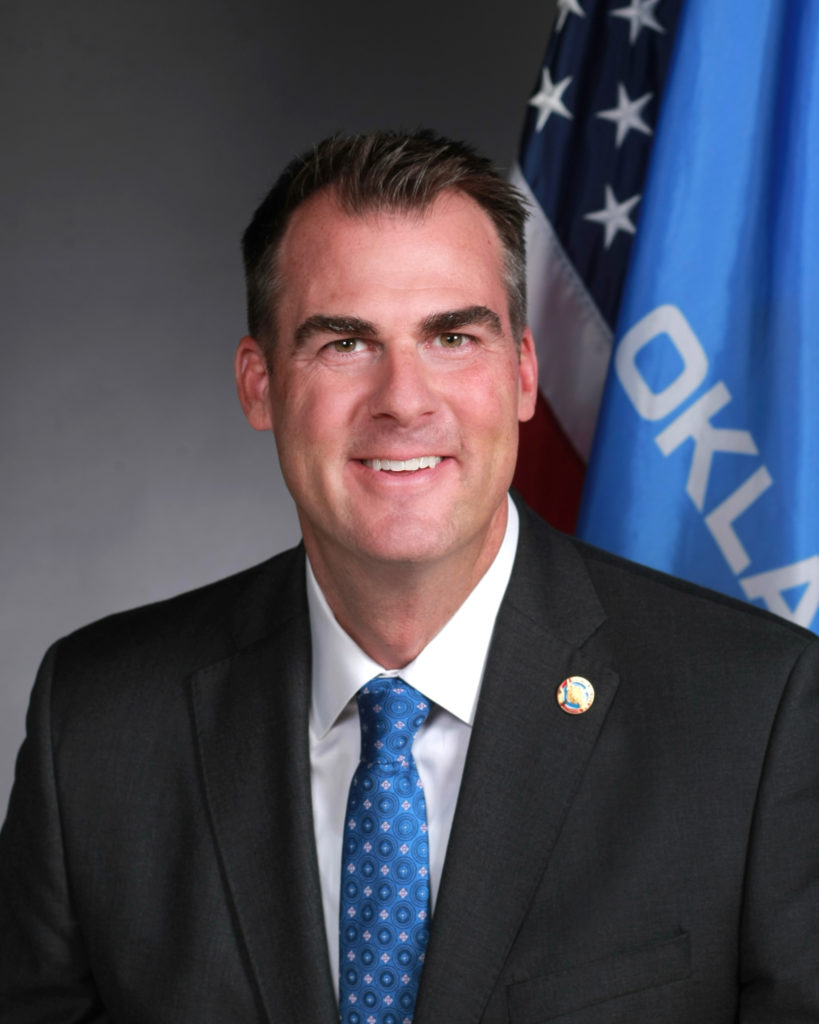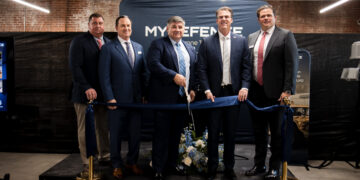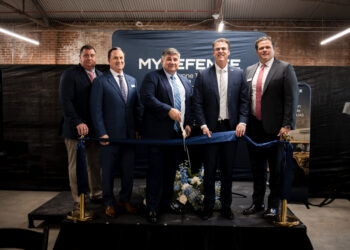OKLAHOMA CITY (OBV) – Gov. Kevin Stitt sent an offer to the Cherokee Nation’s principal chief to extend the car tag compact between the state and the tribe for one year to provide time to renegotiate the compact.

“With the existing compact about to reach the end of its term, I reached out to Principal Chief [Chuck Hoskin Jr.] to extend the existing terms for one year to allow ample time to negotiate another long-term compact,” Stitt said. “Public safety is one of my highest priorities and ensuring compact compliance so that we know who is driving on our roads is an essential piece of that. As always, my door is open, and I look forward to getting this extension in place very soon.”
The compact is set to expire on Aug. 16. The offered extension has the same materials of the current compact, which has existed for 10 years, according to Stitt’s office.
Stitt sent the offer on Friday, Aug. 4.
“The compact extension includes a clause updating language for the Oklahoma Turnpike Authority and PlatePay to ensure all drivers on toll roads are paying their fair share,” officials with the governor’s office said.
Tribal compacts have been a major point of contention between Stitt and Oklahoma tribal leaders, as well as Stitt and the Oklahoma State Legislature.
The State Legislature recently succeeded in overriding Stitt’s veto of Senate Bill 26X, which extends the tobacco compact with tribal nations until Dec. 31, 2024. The legislature previously overrode House Bill 1005X, which extends vehicle registration compacts with the tribal nations.
Stitt announced during a news conference last week that he was filing a lawsuit with the Supreme Court to continue his fight against the compacts as they exist in their current form.
“I’m pretty disappointed in the vote today. There’s two compacts that were questioned. I made [a new compact] offer to 16 tribes. It was the same offer we made last year, a 50/50 split,” Stitt said. “Mine was for a two-year extension instead of a one-year extension.”
Stitt alleged that the existing compacts effectively turn Eastern Oklahoma into a reservation. He said the tribal governments argue that reservations exist for all purposes. Stitt said he will not budge an inch in his fight.
“I’m against turning Oklahoma into a reservation for all purposes,” Stitt said. “I’m going to fight for all of Oklahoma to be under the same set of rules.”
Stitt filed the lawsuit against House Speaker Charles McCall and Senate Pro Tem Greg Treat.
“We think the authority is clearly with the governor,” Stitt said. “We need the courts to tell us does the governor have the authority to negotiate the compacts or does the legislature have the authority to negotiate the compacts.”
Treat issued the following statement in response to Stitt’s remarks during the news conference:
“First, I applaud our House counterparts for coming in today and delivering on an override of the final veto of the two compact bills that have been the subject of unnecessary ridicule and strong-armed tactics from the executive branch. We couldn’t have done it without the leadership in the House working with the Senate to do what’s in the best interest of our state.
Plain and simple, the governor’s continued rhetoric and vitriol surrounding not only these compacts, but also our Native American Tribal partners as a whole, seeks to divide the state. It is clear at this point the governor has no end game, goal or aspirations of working with the legislature or tribes. He continues to ignore the courts, legislature and common sense.
I want clarity on issues in the post McGirt world. The governor’s misguided actions have led to chaos and confusion, bringing us further from any kind of meaningful resolution.
These compacts in particular weren’t new, they weren’t unique in any way, they simply kept the exact same language as before to give him an opportunity to try and do the right thing by working with the tribes to renegotiate the compacts, while ensuring the state didn’t lose millions in revenue. He has once again failed Oklahoma. Today, history is repeating itself with the announcement of this lawsuit. I’m confident his intentions will meet the same fate as we have unfortunately witnessed, and paid for, in the past.
By overriding these vetoes, the legislature gave the governor another avenue and opportunity to negotiate in good faith, as we have done repeatedly. He has never accepted or appreciated our efforts and has turned his back [on] all four million Oklahomans, the legislative process and Oklahoma’s tribal partners, costing the state millions in legal fees. This zero-sum game he is playing is a losing strategy and I hope Oklahomans and my fellow lawmakers are paying careful attention.”
Senate Pro Tem Greg Treat
McCall also responded, issuing this statement:
“Today, Gov. Stitt filed the latest in a series of lawsuits that waste taxpayer dollars and attempt to undermine legitimate compact negotiations with our state’s federally recognized tribes. A plain reading of the decisions in Treat I and II shows that his legal questions have already been answered by the court and the governor simply fails or refuses to accept the answer and recognize the law. This is further evidenced by the litigation currently filed in the District of Columbia. Rather than accept the Oklahoma Supreme Court’s decision, and work with the Legislature and our state’s tribal partners on a way forward, Gov. Stitt has spent tens of thousands of taxpayer dollars on D.C. attorneys in an attempt to give up Oklahoma sovereignty to the Biden Administration in hopes that they will agree with him and undermine Oklahoma law.
In his comments to the media, the governor called into question the legitimacy of the special session that was held to override his vetoes regarding legislation extending compacts with our tribal partners. The Legislature’s ability to call a special session, and the particular special session call itself, are well within the Legislature’s constitutional authority.
Both the House and Senate followed the law and the Governor simply does not agree with the result. But the legislators, those closest to all 4 million Oklahomans, know that the citizens are counting on them to find solutions rather than to simply fear monger and cost the state tens of millions of tax dollars that go to important core services like education. Rather than simply allowing compacts to lapse and wasting time, and more importantly taxpayer dollars, on frivolous lawsuits, the governor should focus on ways to work with all parties, including our tribal partners, to find solutions that make sense for our entire state.
I look forward to continuing negotiations on tribal compacts with all interested parties, and await the court’s decision on the most recently filed lawsuit.”
House Speaker Charles McCall
Stitt has also battled the tribes through the courts over gaming compacts. The governor has not succeeded in getting those compacts changed.

















